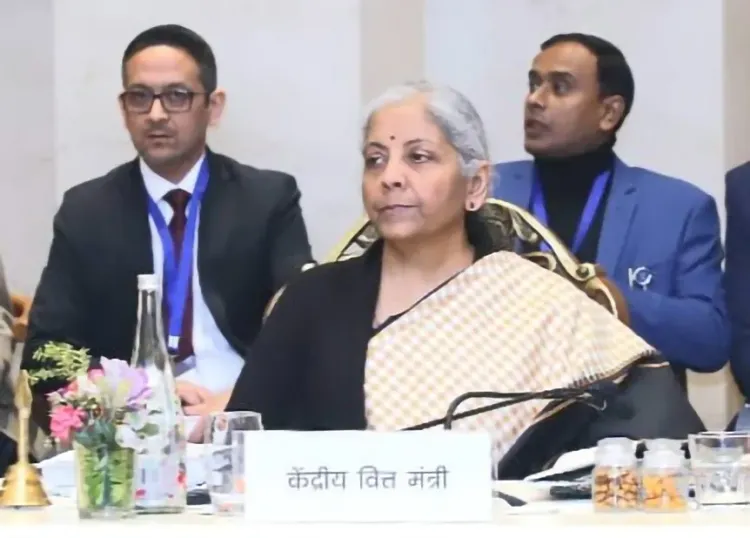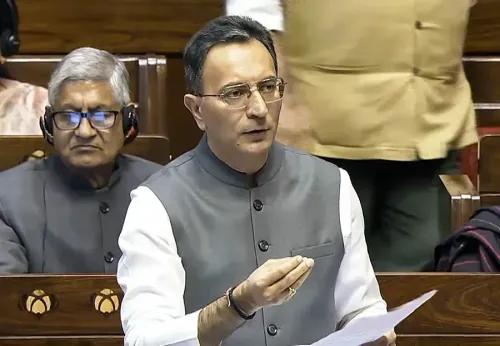Will the GST Council Discuss Rate Rationalisation and Compensation Cess in Its Upcoming Meeting?

Synopsis
Key Takeaways
- The GST Council is focusing on rate rationalisation.
- The future of the compensation cess is under discussion.
- GST rates have been reduced significantly since 2017.
- April 2024 saw a record GST collection, indicating economic resilience.
- Transparency and efficiency in taxation are vital for economic growth.
New Delhi, May 24 (NationPress) The upcoming GST Council meeting is set to focus on simplifying the indirect taxation framework and addressing the discrepancies in the current Goods and Services Tax (GST) rate structure. Rate rationalisation and the future of the compensation cess are expected to be key topics of discussion.
Convened in New Delhi, the meeting aims to provide clarity to states concerning their revenue forecasts in light of the upcoming fiscal planning cycle.
As reported by NDTV Profit, the compensation cess, which was initially introduced to mitigate revenue losses for states following the GST implementation, is under scrutiny, especially regarding its potential continuation beyond 2026.
Union Finance Minister Nirmala Sitharaman stated in March that further reductions in GST rates are on the horizon, as efforts to rationalise tax slabs approach completion. The revenue neutral rate (RNR), which started at 15.8 percent with the GST introduction in July 2017, has decreased to 11.4 percent in 2023 and is projected to decline further.
FM Sitharaman mentioned that the process of simplifying GST slabs is nearing its conclusion, with the GST Council, which includes Finance Ministers from various states, expected to make a final decision shortly.
A Group of Ministers (GoM), established in September 2021, is dedicated to recommending changes in GST rates and slabs. This committee, comprising finance ministers from six states, has been focused on enhancing the efficiency of the tax system. The rationalisation process involves minimizing the number of tax slabs, streamlining rates, and addressing significant concerns from multiple industries.
The Union Minister also highlighted that a final review is currently being conducted before the proposal is presented at the upcoming GST Council meeting.
The gross GST collections for April reached Rs 2.36 lakh crore, reflecting a 12.6 percent increase compared to the gross collection of Rs 2.10 lakh crore in April 2024. This record collection in April underscores the resilience of the Indian economy and the success of cooperative federalism.










